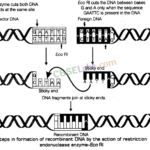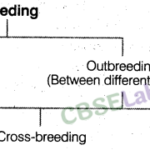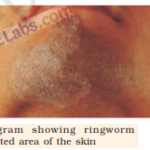Biotechnology: Principles and Processes - CBSE Notes for Class 12 Biology CBSE NotesCBSE Notes BiologyNCERT Solutions Biology Principles of Biotechnology and Tools of Recombination DNA Technology: 1. Biotechnology can be defined as the use of microorganisms, plants or animal cells or their components to produce products and processes useful to humans. According to the … [Read more...]
Microbes in Human Welfare- CBSE Notes for Class 12 Biology
Microbes in Human Welfare- CBSE Notes for Class 12 Biology NCERT SolutionsMathsPhysicsChemistryBiologyScience Microbes in Household Products, Industrial Products and in Sewage Treatment: 1. Microbes are the major components of biological systems on the earth. They are present everywhere, i.e. in soil, water, air, inside our bodies and those of other animals and plants. … [Read more...]
Strategies Enhancement in Food Production – CBSE Notes for Class 12 Biology
Strategies Enhancement in Food Production - CBSE Notes for Class 12 Biology CBSE NotesCBSE Notes BiologyNCERT Solutions Biology Animal Husbandry: 1. Animal husbandry is the agricultural practice of breeding and raising livestock. It deals with the care and breeding of livestock like buffaloes, cows, pigs, horses, cattle, sheep, goat, etc. It also includes poultry farming … [Read more...]
Human Health and Disease – CBSE Notes for Class 12 Biology
Human Health and Disease - CBSE Notes for Class 12 Biology NCERT SolutionsMathsPhysicsChemistryBiologyScience Health, Common Diseases in Human and Immunity: 1. Health is defined as a state of complete physical, mental and social well-being. (i) The factors which affect human health are: (a) Genetic disorders (b) Infections (c) Lifestyle. (ii) Balanced diet, personal … [Read more...]
Molecular Basis of Inheritance – CBSE Notes for Class 12 Biology
Molecular Basis of Inheritance - CBSE Notes for Class 12 Biology NCERT SolutionsMathsPhysicsChemistryBiologyScience The DNA and RNA World: 1. Over the years after Mendel, the nature of the genetic material was investigated, resulting in the realisation that DNA is the genetic material in majority of organisms. 2. Deoxyribonucleic acid (DNA) and Ribonucleic acid (RNA) … [Read more...]



